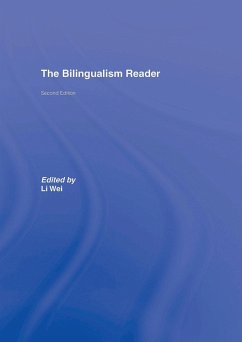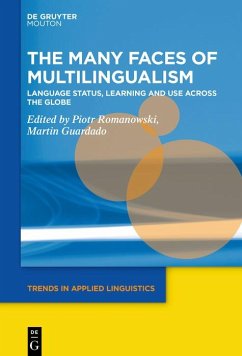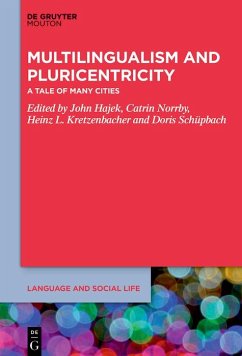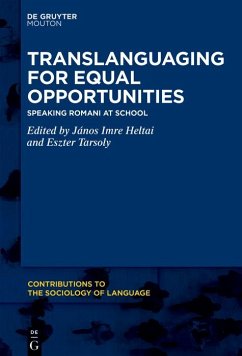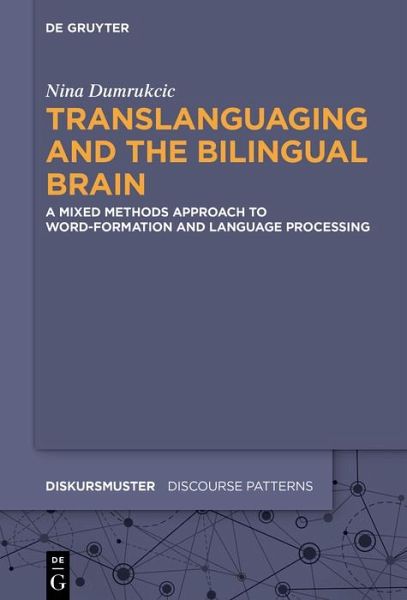
Translanguaging and the Bilingual Brain (eBook, ePUB)
A Mixed Methods Approach to Word-Formation and Language Processing

PAYBACK Punkte
35 °P sammeln!
Multilingual classrooms and online communication are becoming increasingly linguistically diverse due to globalization and new discourse patterns are emerging. Many of these patterns include the use of linguistic resources from multiple languages in the same utterance. Translanguaging, a recent theoretical framework, is gaining prominence among scholars interested in studying these multilingual discursive practices and the concept of a unitary language system for lexical processing. The aim of this book is to gain a better understanding of the bilingual brain and how words and sentences that ...
Multilingual classrooms and online communication are becoming increasingly linguistically diverse due to globalization and new discourse patterns are emerging. Many of these patterns include the use of linguistic resources from multiple languages in the same utterance. Translanguaging, a recent theoretical framework, is gaining prominence among scholars interested in studying these multilingual discursive practices and the concept of a unitary language system for lexical processing.
The aim of this book is to gain a better understanding of the bilingual brain and how words and sentences that use features from socially distinct languages are processed. Using examples provided by multilingual study participants, a categorization of the various forms of translanguaging is developed to build a translanguaging model. Psycholinguistic methods such as eye tracking are combined with conventional sociolinguistic survey methodology to provide rich qualitative and quantitative data that address the cognitive effects of translanguaging and the underlying structure of translingual word-formations.
This monograph shows how language biography, exposure, and attitude towards multilingual discursive practices all affect cognitive processing. It also demonstrates how multilingual speakers are setting the patterns for novel word-formations to be produced, thus having a social, cultural, and cognitive impact on how we communicate.
The aim of this book is to gain a better understanding of the bilingual brain and how words and sentences that use features from socially distinct languages are processed. Using examples provided by multilingual study participants, a categorization of the various forms of translanguaging is developed to build a translanguaging model. Psycholinguistic methods such as eye tracking are combined with conventional sociolinguistic survey methodology to provide rich qualitative and quantitative data that address the cognitive effects of translanguaging and the underlying structure of translingual word-formations.
This monograph shows how language biography, exposure, and attitude towards multilingual discursive practices all affect cognitive processing. It also demonstrates how multilingual speakers are setting the patterns for novel word-formations to be produced, thus having a social, cultural, and cognitive impact on how we communicate.
Dieser Download kann aus rechtlichen Gründen nur mit Rechnungsadresse in A, B, BG, CY, CZ, D, DK, EW, E, FIN, F, GR, HR, H, IRL, I, LT, L, LR, M, NL, PL, P, R, S, SLO, SK ausgeliefert werden.




